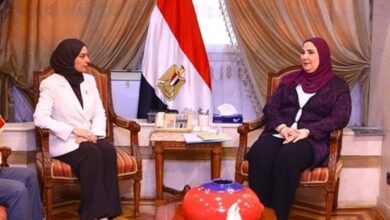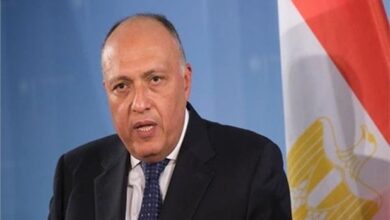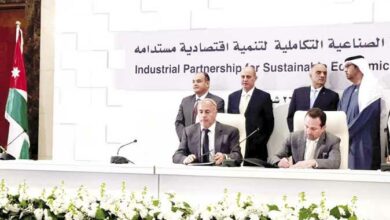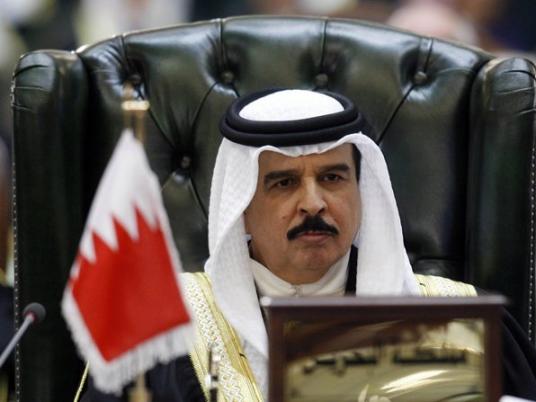Bahrain's security forces used excessive force to suppress pro-democracy protests earlier this year, torturing detainees to get confessions, an inquiry panel charged with investigating abuses said on Wednesday.
The government commissioned report, designed to help heal sectarian divisions between the island kingdom's Sunni rulers and majority Shias, acknowledged five people had been tortured to death but said abuses were isolated incidents.
However the inquiry panel, led by Egyptian-American international law expert Cherif Bassiouni, dismissed Bahrain's allegation of Iranian interference in fomenting unrest, saying that was not supported by any evidence.
"In many cases security agencies in the government of Bahrain resorted to excessive and unnecessary force," Bassiouni said at the king's palace, adding that some detainees suffered electric shocks, and beatings with rubber hoses and wires.
Bahrain's Shia-led opposition reacted cooly to the report, some saying it did not go far enough while others complained that those responsible for the abuses remained in office.
Sheikh Ali Salman, head of the Shi'ite Wefaq bloc which quit parliament over the unrest, said: "We cannot say Bahrain is turning a new leaf yet … because the government that carried out all those abuses is definitely not fit to be given the responsibility of implementing recommendations."
The United States urged its ally Bahrain, home to the US Fifth Fleet, to quickly address abuses laid out in the report.
Washington, which has been faulted by rights activists for not criticizing Bahrain more sharply for the crackdown, appeared to carefully balance its demand for the abuses to be addressed with praise for its Gulf ally.
"We are deeply concerned about the abuses identified in the report and urge the Government and all elements of Bahraini society to address them in a prompt and systematic manner," US Secretary of State Hillary Clinton said in a statement.
"We believe the … report offers a historic opportunity for all Bahrainis to participate in a healing process that will address long-standing grievances and move the nation onto a path of genuine, sustained reform," Clinton added.
Bahrain's Shia majority, inspired by uprisings that toppled the leaders of Tunisia and Egypt, took to the streets in February and March to demand political reforms but their protests quickly escalated into the worst sectarian political violence since the mid-1990s.
The ruling Khalifa family responded by declaring martial law and called in troops from fellow Sunni Saudi Arabia and the United Arab Emirates as it set about crushing the protests.
The inquiry panel said there was no official policy of abuse during the widespread unrest, led by Bahrain's majority Shi'ite population demanding an end to sectarian discrimination and demanding a greater say in government. A few Shi'ite groups called for the abolition of the monarchy altogether.
The panel – which said 35 people were killed, including five security personnel – urged a review of sentences handed down on people arrested following the protests, when more than 2,000 state employees were also sacked, according to Bassiouni.
King renews accusation against Iran
King Hamad bin Isa al-Khalifa, speaking after Bassiouni delivered his report, repeated the accusations against Iran, but said laws would be reviewed and if necessary revised in light of the unrest.
"We do not want, ever again, to see our country paralyzed by intimidation and sabotage … nor do we want, ever again, to discover that any of our law enforcement personnel have mistreated anyone," he said.
"Therefore, we must reform our laws so that they are consistent with international standards to which Bahrain is committed by treaties," he said.
In a statement, Bahrain noted the inquiry showed five deaths during the unrest were the result of torture, but added: "The report does not confirm that there was a government policy of torture, mistreatment or using excessive force."
A section of the 500-page report found the security service and interior ministry "followed a systematic practice of physical and psychological mistreatment, which amounted in many cases to torture, with respect to a large number of detainees."
Bassiouni also echoed elements of the kingdom's narrative of the unrest, saying Sunnis were targeted for intimidation by protesters. These included foreigners, including Pakistanis that the opposition say were naturalized because they are fellow Sunnis and employed in security services.
The United States has said a US$53 million arms deal depends on the delivery of the report, and Bahrain has already acknowledged security forces used excessive force in some cases, while consistently denying any coordinated policy of torture.
The report follows a state-orchestrated "national dialogue" in the wake of the unrest which opposition groups dismissed as a farce.
The crackdown has left Bahrain polarized along sectarian lines, with low expectations from both sides that the inquiry would lead to reconciliation.
"It should have criticized the opposition that claims to represent the Shia, it only criticized the government," said Sheikh Muhsin al-Asfoor, a pro-government Shia cleric who advises the king on Shia affairs.
Maryam al-Khawaja, an activist with a Bahraini human rights group, suggested the investigation wound up exonerating Bahrain rather than identifying abuses, noting on Twitter: "Minutes after talked of violations … Hamad thanked the police."




